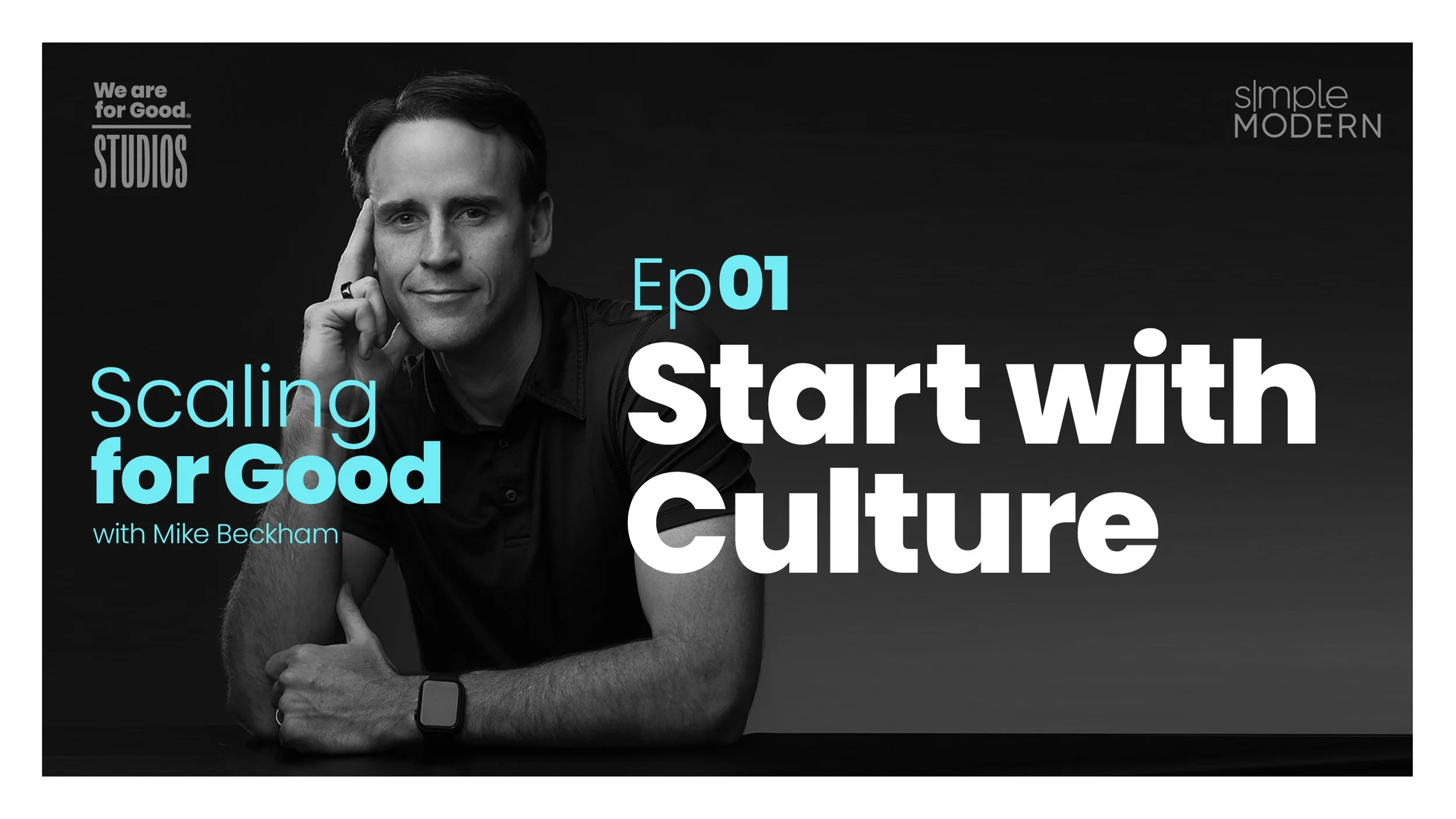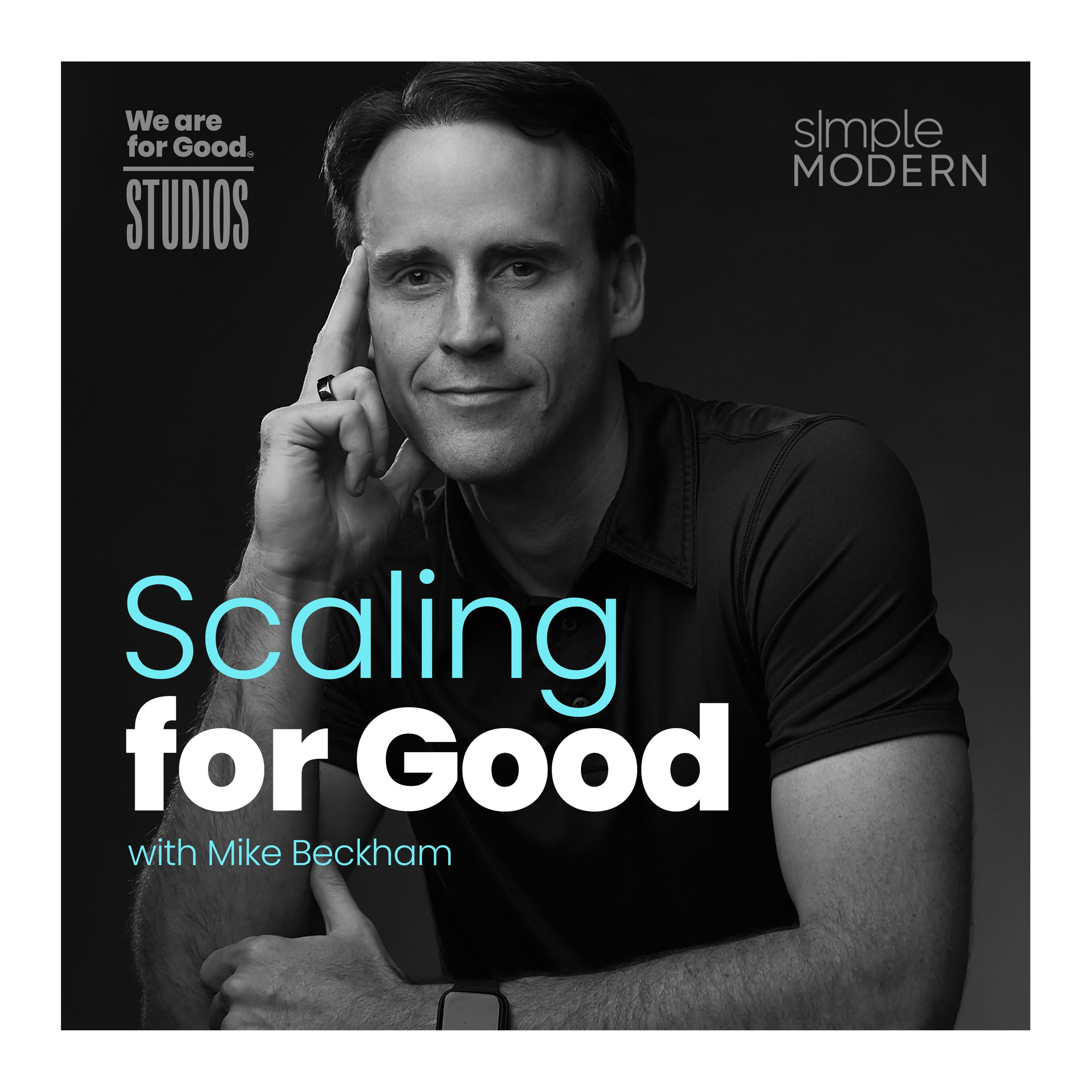1. Start with Culture
Listen to this episode
Overview
This episode is all things culture which is the foundation for any long lasting organizational success. We will hear stories of culture in action, get a definition of culture, learn what we need to do to set it in our organization, and finally understand what we must do to keep the culture we want to have.
Learn
What is culture and how do you create it?
Defining your organization’s value hierarchy
How to get started building a healthy culture
Indicators that a culture is a going south
How culture affects the long term sustainability and health of an organization
“The only way that culture continues to grow as an organization grows is if everyone views it as something that they personally own and have personal responsibility for.”
Episode Transcript
Download Full Episode Transcript
Episode Highlights
Tone setting + a culture defining moment early in the Simple Modern story (1:30)
The 3 core components within the culture of an organization (4:00)
The text and subtext of an organization (5:00)
Great culture battles two things in tension (6:30)
The support challenge matrix (7:00)
Components of an unhealthy culture (9:50)
How culture effects the long term health of an organization (13:00)
Questions you can ask today to apply these principles (15:00)
How to start building a healthy culture today (18:40)
The number one red flag in an organization that can be detrimental to your culture (20:00)
Overprotective vs. over challenged cultures (24:00)
Mike Drop Moment: Healthy culture is an environment that helps everybody to thrive. (27:00)
Powerful Quotes
“It was such a culture defining moment of seeing the entire team come together to fix a problem.” -Mike
“In any organization, there's a hierarchy of the things that they value.” -Mike
“What are the things that you're going to be willing to make sacrifices for? That, again, illustrates a lot about the values, purpose and the mission of the team, and bleeds out into the culture.” -Mike
“Effective teams, teams that outperform teams that are successful, that are excellent, they challenge the members of the team. And they're constantly calling people up and pushing them to do more than they thought they could do by themselves. But simultaneously, there's this really high value for the individual, and consideration of where they're at and their development.” -Mike
“What our people need from us is a combination of support and challenge. And when they only get one or the other, it's imbalanced, and it has all these negative ramifications on the culture.” -Mike
“So my litmus test for our culture is really simplistic. When somebody hits about 90 days in the organization, I'll always ask them, “How has your experience compared to your expectation?” Because for me, it's the way of judging as they got closer to the organization, did the culture look better or worse than they expected it to?” -Mike
“I think building something that's sustainable, and excellent for an extended period of time, totally depends on culture.” -Mike
“The reality is, over time, culture outweighs strategy and tactics when it comes to the long term health of an organization.” -Mike
“We need to be deliberate here is that we're prioritizing, thinking about how we're cultivating culture, and in the organizations or teams that were a part of, and how are we helping apply these principles, so that we're, we're fostering the thriving that comes with healthy culture.” -Mike
“Start with the belief that culture is something that you can intentionally shape and being intentional instead of accidental.” -Mike
“We're looking for missional alignment, we're looking for alignment with the values, then we're looking for competency.” -Mike
“The number one red flag in any culture is entitlement. When people that are a part of a team, an organization, a unit, start to feel like they are owed, or they deserve things, then that thought process allows them to engage in behaviors, actions, attitudes, that are obviously detrimental to the group and to the environment.” -Mike
“That’s what healthy culture is all about. It’s about creating environments where all the people in your team and organization or family or whatever, can thrive and being deliberate and intentional, instead of accidental.”
Core Components that Comprise a Culture:
Values and norms of an organization
Incentives
What the organization or team make sacrifices for
Questions you can ask yourself today:
What is your value hierarchy?
Are you modeling those values to other people?
Are you creating an environment where there's a good balance of support and challenge?
Are you cultivating environments where everyone feels entrusted with and empowered to help own and lead the culture?
Connect with Mike
Connect with Simple Modern
Website / Twitter / Facebook / Instagram / Pinterest / YouTube


